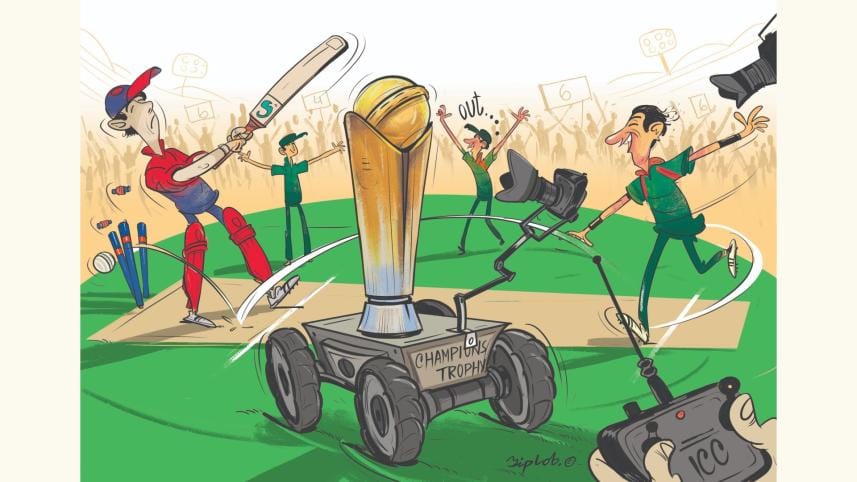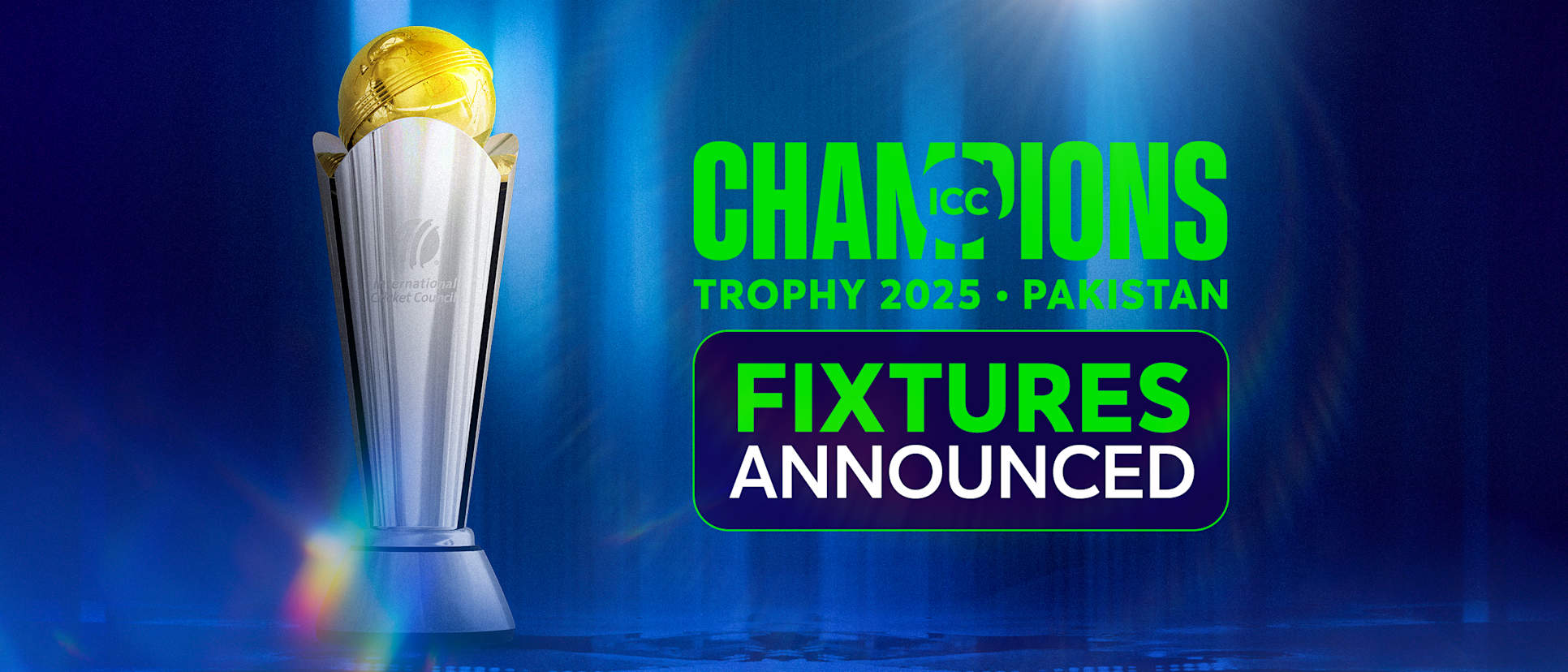The lost colossus awakens, with renewed purpose

With a promise to stir the long-dormant heartbeat of the sport, the ICC Champions Trophy returns to cast its mighty presence once more.
First birthed as the ICC KnockOut Trophy in 1998, then rebranded in 2002, the tournament has always gifted the sport with moments etched in history. For instance, the victory of South Africa in the inaugural edition still stands as their solitary silverware in a global tournament. Then Pakistan tasted their first victory against India in an ICC event in the 2004 edition, the tournament eventually reaching its crescendo with West Indies tailenders snatching victory from the jaws of defeat against England.
For several years, the tournament was held every two years but following the 2009 edition the tournament shifted to a four-year cycle, featuring the top eight teams from the ICC ODI rankings.
However, for the past eight years since the preceding 2017 instalment, the Champions Trophy has been a ghost of the past, a missing piece in one-day international (ODI) cricket's identity.
Now, in 2025, the Champions Trophy is back, stepping into a world where cricket itself has changed. The Twenty20 leagues now rule the calendars, Test cricket fights to preserve its ancient traditions, and the once-mighty ODI format lies in a state of limbo -- neither here nor there -- drifting between worlds.
This is more than a return; it is a battle cry. The International Cricket Council has thrown its weight behind it. The game's global governing body's decision to inject a record-breaking USD 6.9 million prize pool -- a whopping 53 percent increase from the last edition -- into the tournament is not just a financial boost, it is a statement of belief. Also, with each group-stage win worth over USD 34,000 for the victorious teams ensures that the competition remains fiercely contested from the get-go.
Beyond the spectacle, a larger question looms: what does this tournament, returning after eight long years, mean for the future of ODI cricket? Once cast aside in favour of a single global event per format, the Champions Trophy's return suggests that ODIs still have a heartbeat. But for how long?
As it stands, 50-over cricket continues to struggle in an era of shrinking attention spans. Matches often drift in the middle overs, offering neither the sustained intensity of T20s nor the strategic depth of Tests. Bilateral ODIs, once central to international schedules, are increasingly sidelined by lucrative T20 leagues and marquee Test series. The format risks being restricted to global events like the World Cup and Champions Trophy, with only occasional high-profile series keeping it relevant.
The Champions Trophy's success could reaffirm ODI cricket's place in the modern game; failure may accelerate its decline. And where better to make this statement than Pakistan? A land where cricket pulses through the veins of its people, yet an ICC event has not graced its shores since 1996. Karachi, Rawalpindi, and Lahore now stand ready to welcome the game's elite.
The format is unforgiving. Two groups of four. No easy matches, no free passes. Only the best move forward. A slip-up can cast teams into the shadows.
The opening salvo will come from Pakistan and New Zealand, a clash that will set the tone for a tournament where each match carries the weight of destiny. But the biggest subplot? India. Political tensions have drawn an invisible boundary, forcing their matches to be staged in Dubai. It's a compromise, a reminder of cricket's entanglement with geopolitics.
The Champions Trophy has always been a tournament of firsts. In its infancy, it was known as the "Mini World Cup", designed to spread the game's reach, with the first edition held in Bangladesh -- a nation then on the fringes of full membership -- and the second in Kenya.
In 2002, however, the tournament found its stage in Sri Lanka and with it came change. The knockout format was discarded, and the revolutionary Decision Review System (DRS) was trialled for the first time; though it wouldn't be formally introduced until 2008.
Similarly, this time the Champions Trophy introduces Artificial Intelligence to enhance fan engagement, offering personalised recaps and driving new interactive experiences across the ICC's digital platforms, bringing fans closer to the action.
For the teams, the stakes couldn't be clearer. India and Australia, the two top-ranked ODI sides, will arrive with their World Cup final duel still fresh in memory. Pakistan, playing at home, will seek to channel the energy of their fervent supporters. England, wounded but dangerous, will look to prove that their white-ball dominance hasn't faded. Former champions South Africa and New Zealand each arrive with their own ambitions, while Bangladesh and Afghanistan know that momentum in a tournament like this can change in an instant.
As the cricketing world turns its gaze toward Pakistan and the UAE, the Champions Trophy 2025 becomes more than just another event -- it is a litmus test for ODI cricket itself.
For now, though, the anticipation is palpable, like the first crackle of thunder before a storm. Will this be the moment that breathes life back into the format, or merely a last hurrah before it fades further into the background? Only time will tell.



 For all latest news, follow The Daily Star's Google News channel.
For all latest news, follow The Daily Star's Google News channel. 
Comments